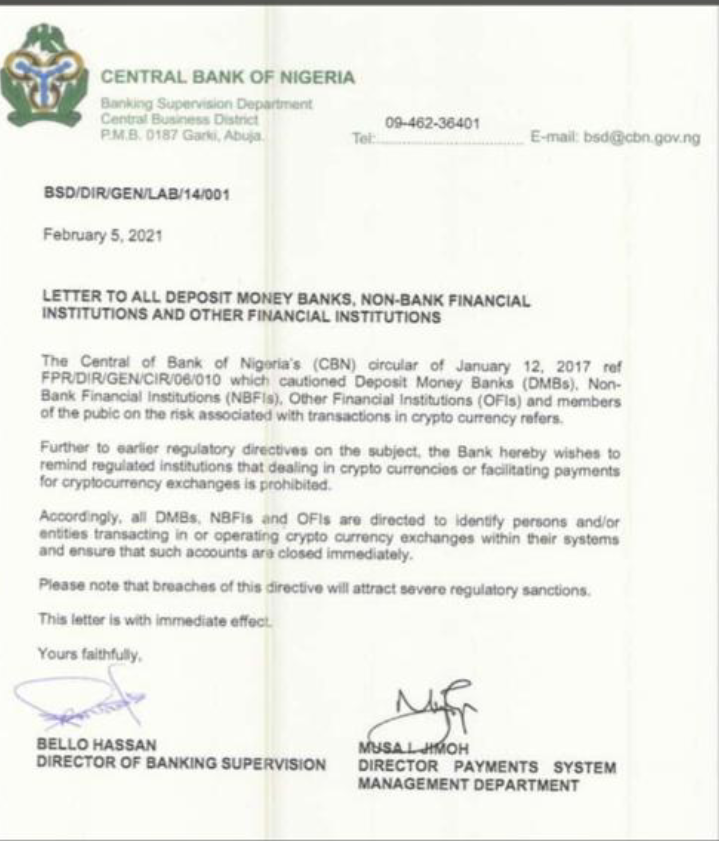Nigerian Fintech company, Patricia has announced that it has relocated its operations to the Republic of Estonia and its headquarters will now be domiciled in the Northeastern European country. According to the startup, the move is in response to the ban on crypto trading by the Nigeria Government as well as part of a global expansion plan.
According to CEO and Founder, Hanu Fejiro Agbodje “What originally came as disastrous news turned out to be the cornerstone we needed for this worldwide expansion.” He was referring to the crypto trading ban by Nigeria’s apex bank, the Central Bank of Nigeria (CBN).
Recall that the CBN issued a circular on February 5th, 2021 directing banks and other financial institutions to desist from transacting in/and with entities trading cryptocurrencies and close their bank accounts accordingly with immediate effect.
According to Hanu, the forced expansion will strengthen their relationships with marketers and agencies in the global crypto markets, whilst positioning it for leadership in Nigeria and Africa.
Founded in 2018 as Patricia.com.ng as an eCommerce platform that trades unused iTunes, Amazon, and Google Play gift cards, Patricia now offers diverse financial solutions with a presence in Ghana, Kenya, South Africa, and China
It was announced as a co-headline sponsor for the 6th edition of BBN starting in a few weeks by show owners, Multichoice about 3 months ago.
Just a bit about the CBN ban…
The CBN order came just at the time when the adoption of virtual currencies by the country’s citizens was growing.
By early 2021, Nigeria has grown to become one of the top countries in terms of crypto trading volume and in value of transactions. According to a Statista report, Nigeria was the 3rd largest Bitcoin trading country in the world with about $400.1 million worth of transactions.


In its directory of cryptocurrency transactions, Nigeria’s apex bank indicated that “VCs such as Bitcoin, Ripples, Monero, Litecoin, Dogecion, Onecoin, etc, and similar products are not legal tenders in Nigeria, thus any bank or institution that transacts in such businesses does so at its own risk.”
The regulation caused major reactions on social media by economic and technology space analysts as well as international agencies such as the IMF.
This backlash made the CBN tender its reasons for banning digital currencies. One of the major reasons was that virtual currencies were being used for criminal activities. Other reasons include that cryptocurrencies prevent oversight, accountability, and regulation.


It also justified its stand by saying that Nigeria is not the first on that path as some other countries have also banned Bitcoin, key industry players, cryptocurrency mining and or other forms of crypto activity.
The ban forced players within the space to device new models to survive. For instance, Patricia announced a new platform, Glover Exchange as the new entity responsible for the day-to-day operations for its Gift cards, Airtime2Cash, and refill services (Bill Payments) but the corrective effect of the move seems not to be impactful.
The story is not different for many other players.






